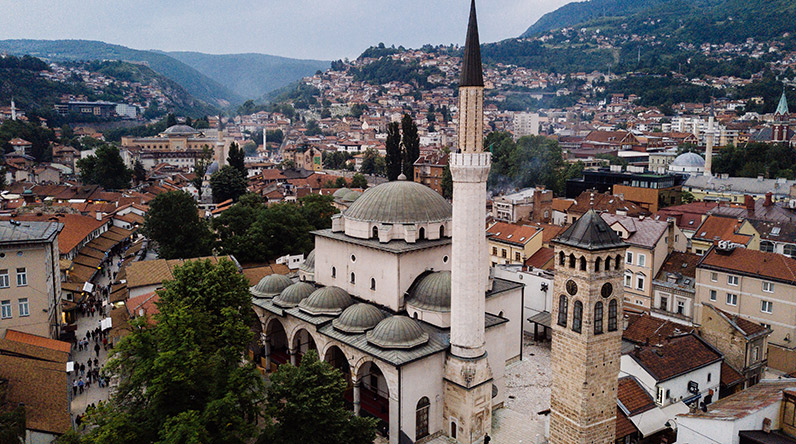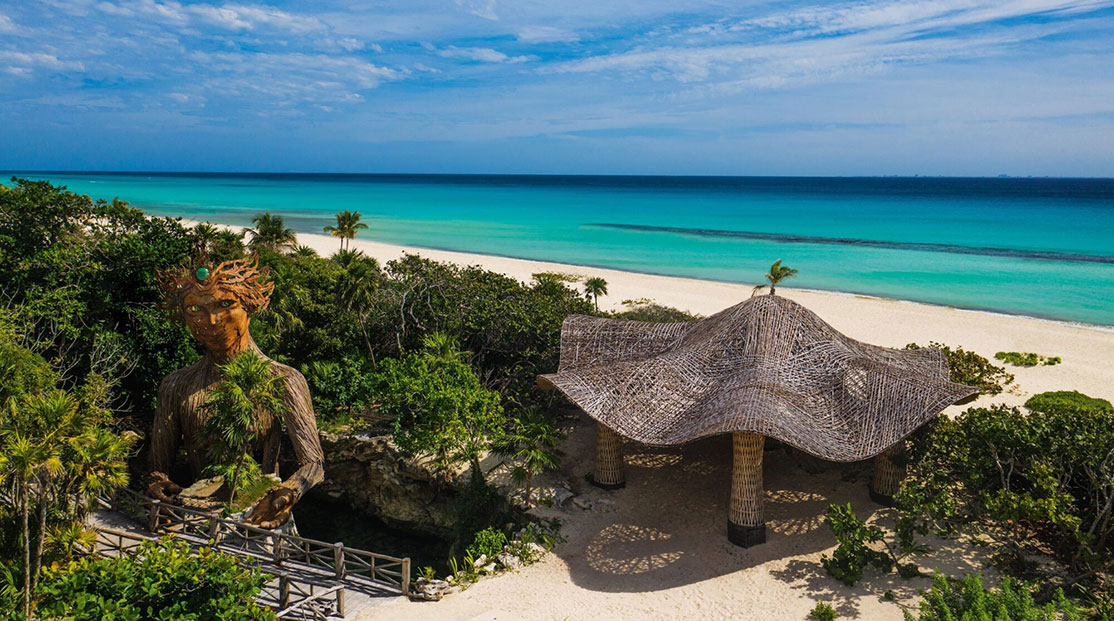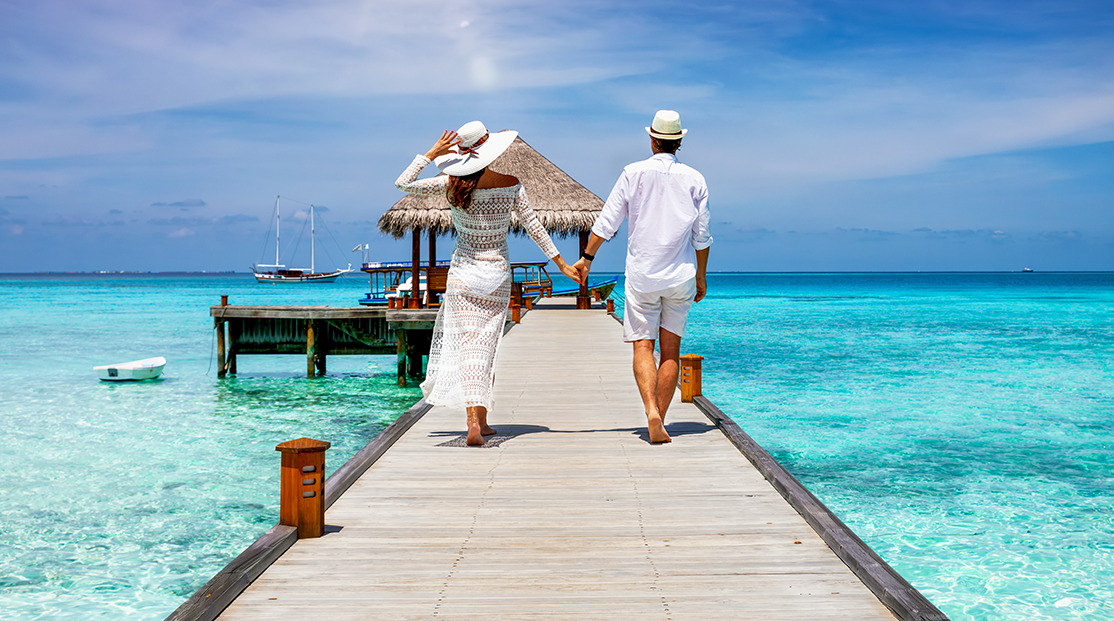The beautiful landscape of central Bosnia, with its mountains, rivers and lakes, was the childhood home of Azijada Emin M Trkic, known as Azi, who was brought up in a traditional Muslim family in what was then part of Yugoslavia. She left when the Bosnian War of the 1990s, and its aftermath, made conditions untenable.
Now living in London, she is founder and director of property management company Proactive UHNWI Services in Belgravia. She is single and has previously worked in Saudi Arabia and the USA. We asked Azi to tell us about traditional Ramadan customs in beloved homeland.

How does Bosnian culture mark Ramadan?
Ramadan and Eid are always very special in Bosnia – for me they bring back beautiful memories – innocent and unspoiled, even by war. The anticipation was so exciting – everything became special. Families would get together. You see, most Bosnians are obsessed with cleanliness, so the first thing to be done for Ramadan was to clean the house from top to bottom – everything! No exceptions. Even the walls would be painted every year prior to Ramadan and refreshed before Eid.
The streets would be swept by teenagers and young unmarried girls, who would get together for the occasion. The road would be sprinkled with water so the cars didn’t kick up dust and dirt when passing. Then the young people would clean the Mekteb [religious school] – we had no Mosque at the time – and finally the main street. There were lots of jokes and laughter, as well as unity and time spent together, which doesn’t happen that often. All this made Ramadan and its preparations even more special.
Every household would - and still does - make halva the day before Ramadan begins, so the whole neighborhood was filled with its sweet, irresistible smell. Flowers from the garden would be brought into the house and Mekteb as a special touch. Our cousin had jasmine in her front garden that had a breathtaking scent which would linger for miles.
In our own garden we had a beautiful purple lilac called Jorgovan that smelled enchanting, just under my bedroom window, and a rose bush with a wonderful scent. Neighbours would ask for our jasmine and jorgovan for their homes and we would share it around. I can still smell our jorgovan and our cousin’s jasmine, but they were destroyed in the war, together with our houses.
People would become more pious and make an effort to pray five times a day, which is not always possible during the rest of the year.

What are the rituals around Iftar and Suhoor?
There was an unwritten rule concerning what was served first and what followed and when. Meals were plentiful, as many work hard and long hours during the fasting day. The fast was broken with lemonade or rose water, made with fresh water carried from the nearby well called Sofa (not too early so it didn’t get warm); dates if you had any, and after that a kahva [coffee].
Bosnians love their kahva, so this was a much-anticipated part of the meal, especially as they would normally drink quite a few coffees throughout the day when not fasting. You can imagine their happiness with that first ‘fildjan’ of coffee. Bosnians like to drink coffee from fildjans – small, handleless mugs. Cups mostly sit displayed for decoration. When I was growing up, dates were hard to get and were a treat, but nowadays they can be bought in the supermarkets.
We children had our special duty, and that was to watch out for lights in the nearby Mekteb and hear a call for Maghrib prayer, which meant it was time to eat. Once we saw the lights we would run home to announce it to the whole neighbourhood. In Sarajevo and Mostar there would be a cannon shot in addition to the mosque’s lit-up minarets. Nowadays this is practised in most of the cities in Bosnia. We felt so proud and special having such a job.
Neighbors would share with those less fortunate, and discreetly leave gifts of necessities – it’s the same nowadays. Charity plays a big part of Ramadan tradition in Bosnia. Meals were often shared with friends, neighbors and relatives, especially on the night the Imam was staying. Many smaller towns shared an Imam but for Ramadan there was always one provided for each day. Many of them came from other parts of the country, or from the Medresa where they were final-year students studying to become Imams, so every night families in the neighborhood would take turns to offer Iftar, Suhoor and a bed for the night to the Imam.
Whichever house the Imam stayed in became the house where neighbors congregated after prayers. This was very exciting for us as youngsters – many friendships and courtships would begin on those nights!
There wasn’t much sleep during Ramadan – at night everyone would pray, socialise and cook, and then food would be freshly made for Suhoor. The outside light on each house would be lit for Suhoor and if anyone's light was not on, a neighbor would come and knock so that no one overslept and missed the meal!

What special dishes do you prepare?
After lemonade, dates and coffee it would be time to serve a homemade soup: sometimes this would be tarhana [made with sourdough noodles and tomatoes], or corba [a little heavier like goulash]. The warm soup was a must. It was light and hydrating and a great way to start the meal after a long day of working and fasting.
We would have a choice of dishes, which was not always the case outside of Ramadan. Pies such as burek [with meat], or sirnica [cheese] were made every day and served after soup. Sagan dolma [filled onions and cabbage] and many other mainly meat dishes would also find their way onto the table with the main meal.
Sutlijas [a home-made sweet rice pudding] was a must-have dish, as well as eksija/kompot, a watery, sweet, smoothie kind of drink served warm or cold and made with dried fruits boiled on the stove. This could be eaten out of the bowl with a spoon or drunk from the cup, depending on its thickness. Kompot was made primarily of wild mountain blueberries and garden prunes, chosen for their health and digestive benefits. People often added dried figs, sultanas or dried pears, but wild blueberries and home-grown prunes were the main ingredients.
Other ‘must’ dishes for Ramadan and Eid included sweet treats such as hurmasica [cookies], cupavci [little cakes like Australian Lamingtons] and lokum [dry homemade biscuit). And for Eid, every household had to have a home-made baklava in addition to other treats.
Ramazanski somuni is a bread specifically made only for Ramadan, and my whole home town used to smell of it just before Iftar as it does nowadays too. Sarajevo old town is known for it.

Do you buy or wear any special outfits for Ramadan?
Every family member wears a new outfit for Eid, but not necessarily for Ramadan, although women would often dress up for every Teravih prayer in the Mekteb throughout the month. Men would be expected only to be clean and neat.

How do you celebrate Eid?
Eid is always very special and in addition to all the other traditional sweets, all households would prepare baklava [sweet pastry with walnuts]. There was always a kind of competition over whose tasted better!
On the first day of Eid everyone got up early and dressed up in their new clothes. After having coffee and a sweet at home, the men and boys went to the Mosque. When they got back, breakfast was served. Afterwards everyone went around wishing their neighbours Eid Mubarak and stopping at each house for coffee or a sweet treat. Children went door-to-door collecting treats and families gave their younger members gifts such as money. Children living away from parent’s home visit their parents if they are alive and after that relatives by seniority, as well as graves of the deceased.

Where are you spending Ramadan this year?
This year I am spending it in London, as I have been doing in recent years. The plan was to go to Bosnia last year and have a “real Ramadan” as I call it, but Covid 19 has changed that.

What are the differences between celebrations in other countries?
Ramadan in London is not the same as in Bosnia. Not even close. It is usually a lonely affair and it doesn’t have the same feel and anticipation as it is not shared or widely regarded.
It was also very difficult over the years to pray five times a day as I would be working long hours, so the prayers would need to be done all at once when I got back home. However, this has changed since I started running my own business and I can mostly adjust time to suit me.
When it comes to the food, I can’t make the dishes our grandmothers and mothers made. I have previously invited some people, whom I know make the fast, over for Iftar on a few occasions and I would try to recreate some of that Bosnian Ramadan spirit, though it isn’t the same. I would serve lemonade, soup and some of the dishes just like in Bosnia, but not all.
When Eid comes I often invite some of my neighbours or close friends – all mostly non-Muslim. Last year, with the covid situation, I invited my neighbours for a cup of tea and cake outside. I put the table and chairs in front of the house on the street with drinks, fruits, chocolate and sweets. It felt good.
USA
Ramadan In the USA was the same as in London. Working all day could get difficult as it was very hot and I would get extremely thirsty. There we had Middle-Eastern dishes, as well as European ones prepared and served by a chef once we got home. There was always enough food to feed an army.

Saudi Arabia
I have spent three Ramadans in the mystic and enchanting KSA. Ramadan in Saudi was exciting, although very different to the one in Bosnia.
I liked all the decorations, food, families getting together, dressing up and respect for the elders, but as everyone sleeps during the day, when the fast is happening, it doesn’t really feel as if you are fasting at all. It is so easy. There’s no time to get hungry or thirsty, unlike in Europe and the USA, where we work all day, getting parched by Iftar time.
In Saudi we would simply swap the day and night where one would be eating most of the night and sleeping during the day. So the fast would be almost over by the time we woke up.
I would wake at least a few hours earlier to enjoy the quietness and the beauty before everyone else was up.
Furthermore, being closer to the Equator there are no summer and winter hours in Saudi so the fasting time is shorter, unlike here in Europe where in the summer we fast for many hours as the days are longer.
DON’T MISS
- Bosnian Ramadan recipes
- Kenyan Ramadan customs
- Moroccan Ramadan recipes
- Afghan Ramadan recipes





